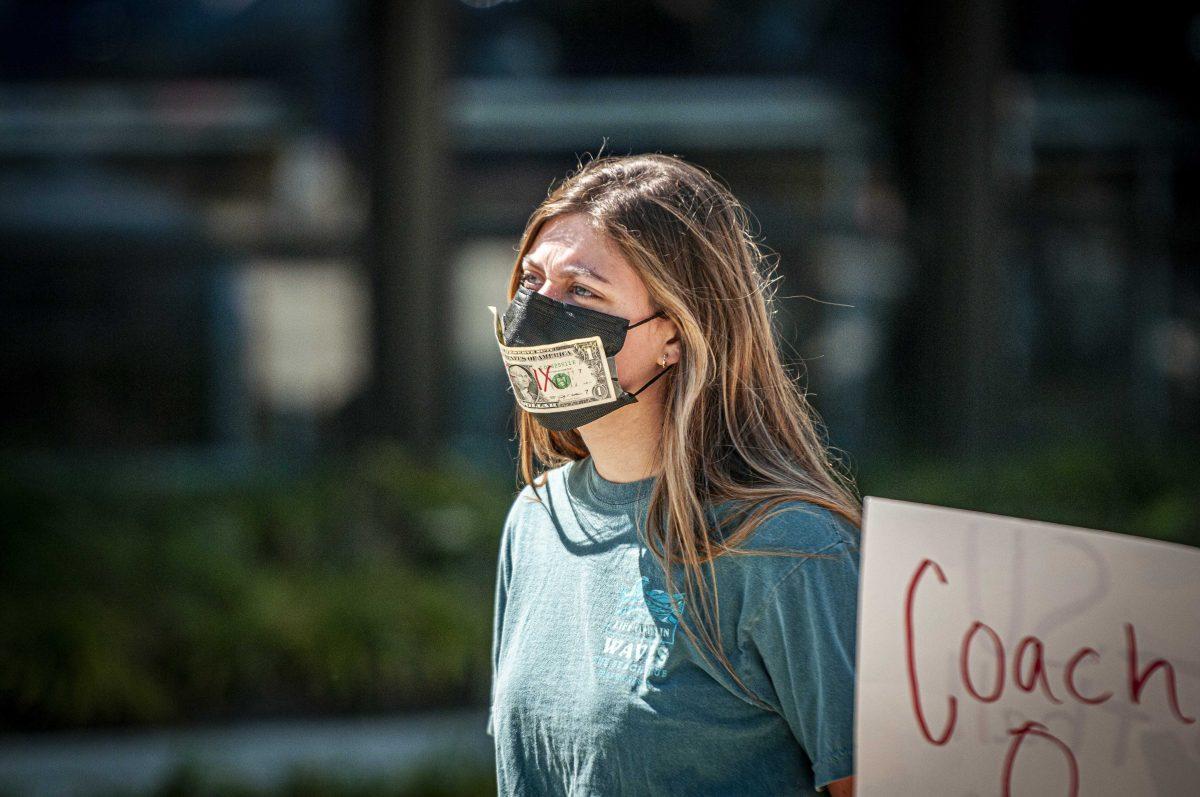Two months into the 2020 football season, USA TODAY published a bombshell Title IX investigation that detailed years of mishandling of sexual and domestic violence reports at the university.
The report conjured rage across Louisiana. Students protested the administration, lawmakers led numerous Louisiana Senate committee hearings and the press searched deeper into the university’s past.
That pressure culminated in a university-commissioned report by law firm Husch Blackwell in March. The report implicated several high-ranking athletics employees in severe violations of Title IX.
Now, as the 2021 season begins, advocates and student leaders continue the important work of holding the administration accountable, but much of the public attention has simmered.
From the beginning, the university treated these disturbing revelations—many of which the administration had known about for years, Husch Blackwell found—as an inconvenient public relations problem. University leaders, desperate to evade responsibility, claimed those responsible for these terrible injustices were already gone and waited patiently for the public to look away.
As football ramps up, our community cannot forget the unresolved Title IX issues that exist in athletics and beyond.
In the last year, Head Football Coach Ed Orgeron has been credibly accused of covering up rape and sexual harassment allegations against former player Derrius Guice.
In a crushing season opener Saturday against UCLA, Orgeron led the Tigers to a devastating 27-38 loss.
Only one of these facts threatens Orgeron’s job at the university, and it’s not the sexual misconduct cover-ups.
When these allegations first emerged last year, the university made no public indication that an investigation would be launched into the claims against Orgeron. One of the most powerful men on campus had been accused of serious Title IX violations, and the athletic directors didn’t pause for a moment.
But then of course, the university is well-experienced in ignoring unethical behavior in football coaches.
Former coach Les Miles was reported several times for sexual harassment, but “the university never did anything about it,” employees told Husch Blackwell. The university had no documentation of the reports of Miles’ disturbing behavior in the Title IX Office or human resources department.
Athletics officials say the handling of accusations against Miles disgusts them, yet they’ve done nothing to properly adjudicate worrisome claims of Title IX mishandling by the current coach.
Miles got fired not after years of sexually harassing student employees, but after an unsuccessful football season. A similar future may await Orgeron should the Tigers continue a poor showing this year.
LSU Athletics’ priorities are painfully clear—football and revenue first, and everything else second.
Other abdications of accountability echo this concerning hierarchy of values.
Husch Blackwell found athletic administrators Miriam Segar and Verge Ausberry repeatedly mishandled Title IX reports.
Wide receiver Drake Davis told Ausberry in a 2018 text message that he had hit his romantic partner Jade Lewis, an LSU tennis player. Ausberry, after receiving this direct admission of domestic violence, did nothing to report it. Husch Blackwell determined his reasons for not doing so were “not credible.”
This gross negligence by Ausberry and many other university employees enabled the continued abuse of Lewis and, in a worse but not unlikely scenario, could have killed her.
It would be difficult to overstate the seriousness of Ausberry’s misconduct. Disregarding Title IX law and failing to protect a student from violence would, a reasonable person may assume, be grounds for immediate termination.
But not at this university. Here, it cost Ausberry an unenforced 30-day unpaid suspension—a tiny dent in his half-a-million-dollar salary—and a season of football game attendance.
The university had reduced the safety of one of its students to a small paycheck cut and a few nights in Death Valley.
Administrators have made some progress in addressing the systemic Title IX issues that, again, they’ve largely known about and refused to address for years. Clarifying policy wording, establishing the Civil Rights & Title IX Office and investing in staff are all essential steps forward.
But the university remains sorely uncommitted to holding powerful figures accountable for their actions. As long as that is true, the culture of this campus will not change.
To let football eclipse these unaddressed injustices would be a grave disservice to the energy and work of these past months.
The administration has spent years abusing the trust of this community. That betrayal ends here, with us.
Claire Sullivan is a 19-year-old coastal environmental science sophomore from Southbury, CT.








